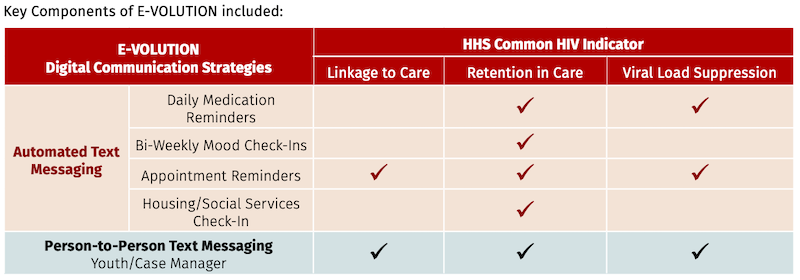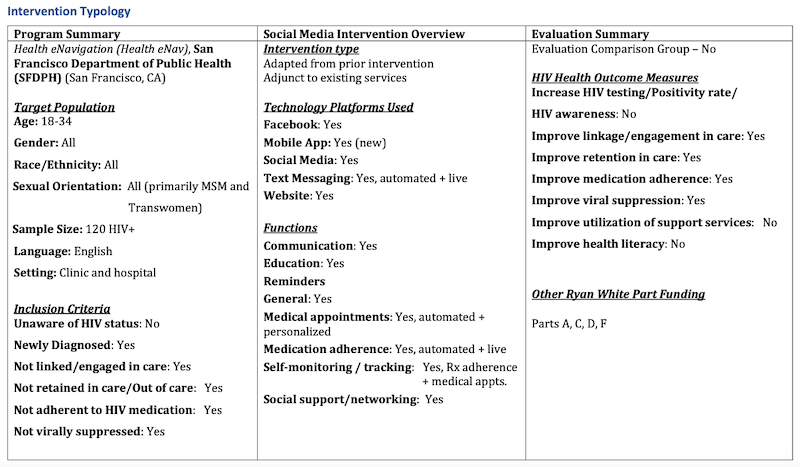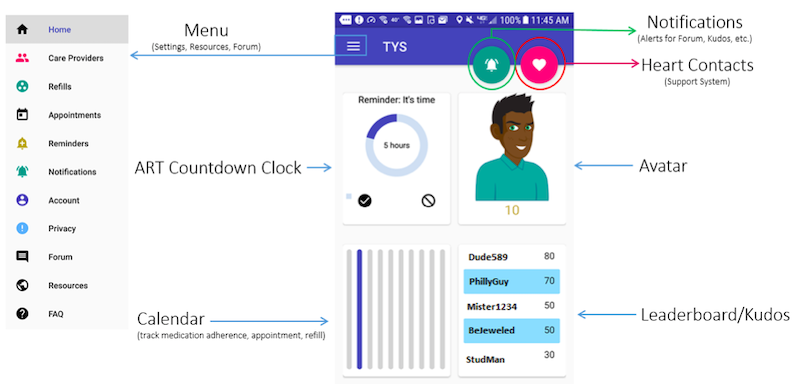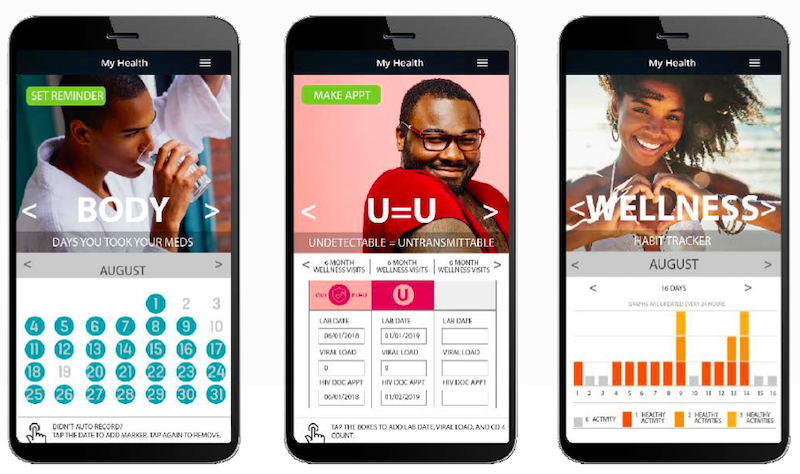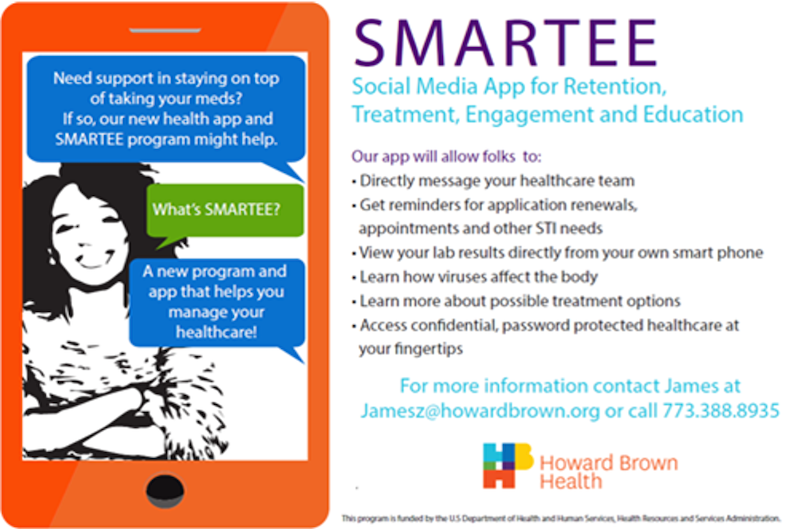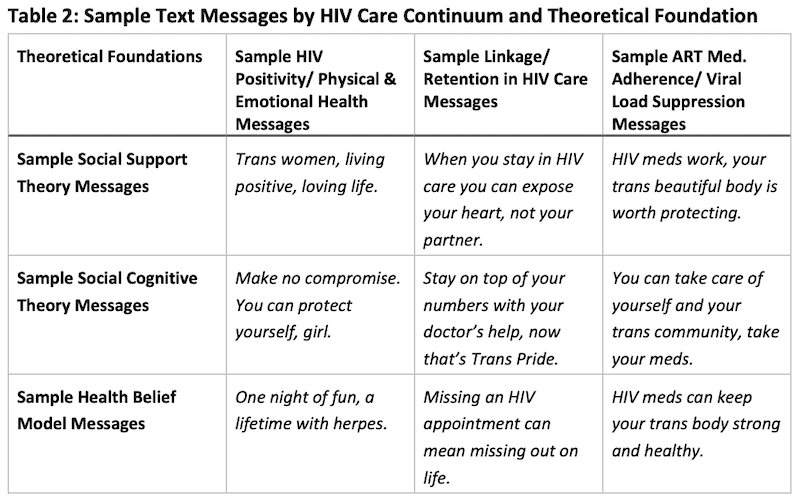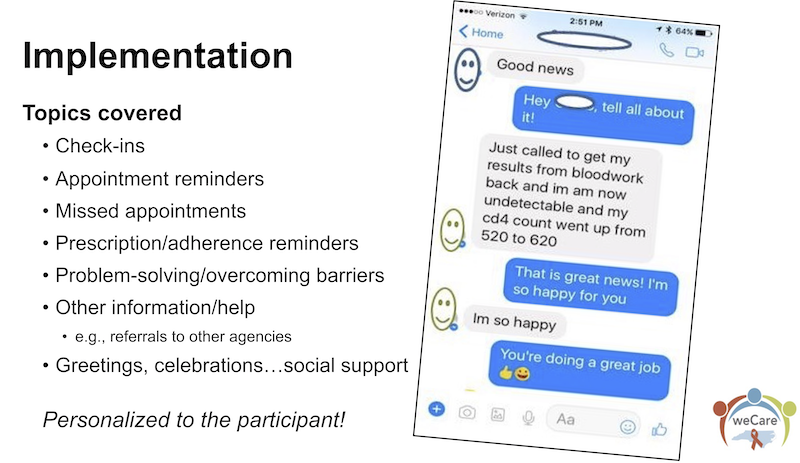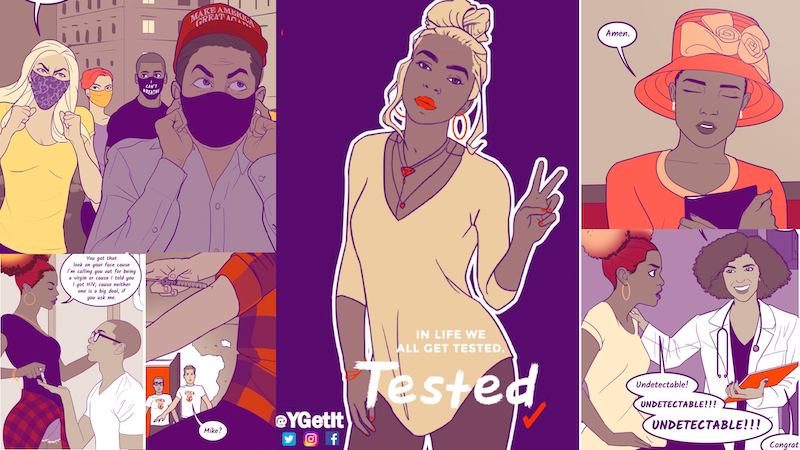Resources (monographs, implementation manuals, mobile apps and text messaging) from ten demonstration sites that participated in Use of Social Media to Improve Engagement, Retention, and Health Outcomes along the HIV Care Continuum, a HRSA HIV/AIDS Bureau Special Projects of National Significance (SPNS) Program initiative.
This initiative focused on innovative social and digital media methods designed to identify, link, and retain underserved, uninsured, hard-to-reach youth and young adults (aged 13-34) with HIV in primary care and supportive services. Methods included a variety of social media, internet, and mobile-based technologies to improve engagement and retention in care, and viral suppression.
Replicating the Interventions
Some sites developed interventions that are ready to adopt and implement (e.g., Positive Peers, YGetIt, Text-Me Girl). Others provide ideas for replication, with resources and lessons learned for teams developing their own interventions. The following summaries include monographs and implementation manuals for use in replicating these programs. Descriptions highlight apps and text messaging/social media communications developed by sites. Some apps are available for download and use. Websites and contact persons can provide specifics on available formats (IOS, Android), audiences, features, and any tailoring that would be necessary.
Publications
- Brooks RA, Swendeman D, Hannay J. Special Projects of National Significance Social Media Initiative: Improving Health Outcomes Along the HIV Care Continuum in Youth and Young Adults Living With HIV [published online ahead of print, 2020 Aug 6]. Health Promot Pract. 2020. doi.org/10.1177/1524839920944806.
- Brooks RA, Nieto O, Swendeman D, et al. Qualitative Evaluation of Social Media and Mobile Technology Interventions Designed to Improve HIV Health Outcomes for Youth and Young Adults Living With HIV: A HRSA SPNS Initiative [published online ahead of print, 2020 Aug 6]. Health Promot Pract. 2020;1524839920938704. doi:10.1177/1524839920938704.
- Reback CJ, Fletcher JB, Kisler K. Text Messaging Improves HIV Care Continuum Outcomes Among Young Adult Trans Women Living with HIV: Text Me, Girl! [published online ahead of print, 2021 Jun 24]. AIDS Behav. 2021; doi: 10.1007/s10461-021-03352-3.
- Gerke DR, Step MM, Rünger D, et al. Associations Between Social Support and Social Media Use Among Young Adult Cisgender MSM and Transgender Women Living With HIV [published online ahead of print, 2020 Aug 6]. Health Promot Pract. 2020;1524839920936248. doi:10.1177/1524839920936248.
- Gerke DR, Glotfelty J, Schlueter J, Freshman M, Plax K. E-VOLUTION: A Text Messaging-Powered Intervention-Connection, Support, and HIV Eradication [published online ahead of print, 2020 Aug 6]. Health Promot Pract. 2020;1524839920936242. doi:10.1177/1524839920936242.
- Zurlo J, Du P, Haynos A, Collins V, Eshak T, Whitener C. OPT-In For Life: A Mobile Technology-Based Intervention to Improve HIV Care Continuum for Young Adults Living With HIV [published online ahead of print, 2020 Aug 6]. Health Promot Pract. 2020;1524839920936247. doi:10.1177/1524839920936247.
- Arayasirikul S, Turner C, Trujillo D, Le V, Beltran T, Wilson EC. Does the Use of Motivational Interviewing Skills Promote Change Talk Among Young People Living With HIV in a Digital HIV Care Navigation Text Messaging Intervention? [published online ahead of print, 2020 Aug 6]. Health Promot Pract. 2020;1524839920936246. doi:10.1177/1524839920936246.
- Step MM, Knight K, McMillen Smith J, Lewis SA, Russell TJ, Avery AK. Positive Peers Mobile Application Reduces Stigma Perception Among Young People Living With HIV [published online ahead of print, 2020 Aug 6]. Health Promot Pract. 2020;1524839920936244. doi:10.1177/1524839920936244.
- Tanner AE, Mann-Jackson L, Song EY, et al. Supporting Health Among Young Men Who Have Sex With Men and Transgender Women With HIV: Lessons Learned From Implementing the weCare Intervention [published online ahead of print, 2020 Aug 6]. Health Promot Pract. 2020;1524839920936241. doi:10.1177/1524839920936241.
- Tanner AE, Mann L, Song E, Alonzo J, Schafer K, Arellano E, Garcia JM, Rhodes SD. weCARE: A social media–based intervention designed to increase HIV care linkage, retention, and health outcomes for racially and ethnically diverse young MSM. AIDS Education and Prevention. 2016 Jun;28(3):216-30. PMCID: PMC5010783.
- Marcu G, Dowshen N, Saha S, Sarreal RR, Andalibi N. TreatYoSelf: Empathy-driven behavioral intervention for marginalized youth living with HIV. In Proceedings of the 10th EAI International Conference on Pervasive Computing Technologies for Healthcare 2016 May 16 (pp. 69-76). ICST (Institute for Computer Sciences, Social-Informatics and Telecommunications Engineering).
- Tanner AE, Song EY, Mann-Jackson L, Alonzo J, Schafer K, Ware S, Garcia JM, Arellano Hall E, Bell JC, Van Dam CN, Rhodes SD. Preliminary Impact of the weCare Social Media Intervention to Support Health for Young Men Who Have Sex with Men and Transgender Women with HIV. AIDS Patient Care STDS. 2018 Nov;32(11):450-458. doi: 10.1089/apc.2018.0060.
- Reback CJ, Rünger D. Technology use to facilitate health care among young adult transgender women living with HIV, AIDS Care. 2019 Aug 12. doi: 10.1080/09540121.2019.1653439. PMID: 31405287.
- Reback CJ, Fletcher JB, Fehrenbacher AE, Kisler K. Text Messaging to Improve Linkage, Retention, and Health Outcomes Among HIV-Positive Young Transgender Women: Protocol for a Randomized Controlled Trial (Text Me, Girl!). JMIR Res Protoc. 2019 Jul 29;8(7):e12837. doi: 10.2196/12837. PMID: 31359867; PMCID: PMC6690158.
- Medich M, Swendeman DT, Comulada WS, Kao UH, Myers JJ, Brooks RA; Special Projects Of National Significance Social Media Initiative Study Group. Promising Approaches for Engaging Youth and Young Adults Living with HIV in HIV Primary Care Using Social Media and Mobile Technology Interventions: Protocol for the SPNS Social Media Initiative. JMIR Res Protoc. 2019 Jan 31;8(1):e10681. doi: 10.2196/10681. Erratum in: JMIR Res Protoc. 2019 Sep 09;8(8):e15660. PMID: 30702434; PMCID: PMC6374729.
- Trujillo D, Turner C, Le V, Wilson EC, Arayasirikul S. Digital HIV Care Navigation for Young People Living With HIV in San Francisco, California: Feasibility and Acceptability Study. JMIR mHealth and uHealth. 2020;8(1):e16838. PMID: 31922489.
- Arayasirikul S, Trujillo D, Turner CM, Le V, Wilson EC. Implementing a Digital HIV Care Navigation Intervention (Health eNav): Protocol for a Feasibility Study. JMIR research protocols. 2019;8(11):e16406. PMCID: PMC6874804.
- Turner CM, Arayasirikul S, Trujillo D, Lê V, Wilson EC. Social inequity and structural barriers to completion of ecological momentary assessments for young men who have sex with men and trans women living with HIV in San Francisco. JMIR mHealth and uHealth. 2019;7(5):e13241. PMCID: PMC6530262.
- Step MM, McMillen Smith J, Kratz J, Briggs J, Avery A. “Positive Peers”: Function and Content Development of a Mobile App for Engaging and Retaining Young Adults in HIV Care. JMIR Form Res 2020;4(1):e13495. PMCID: PMC7055772.
